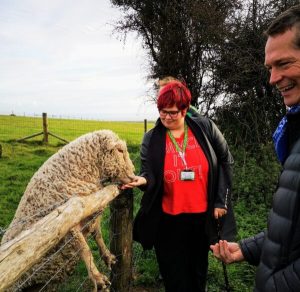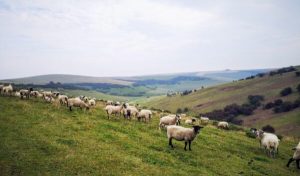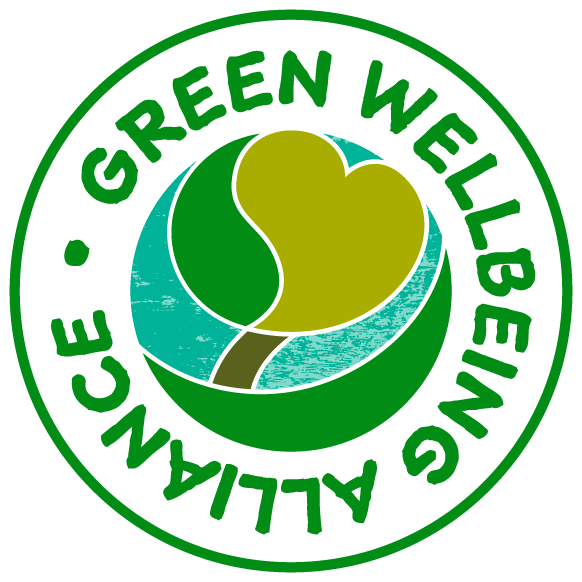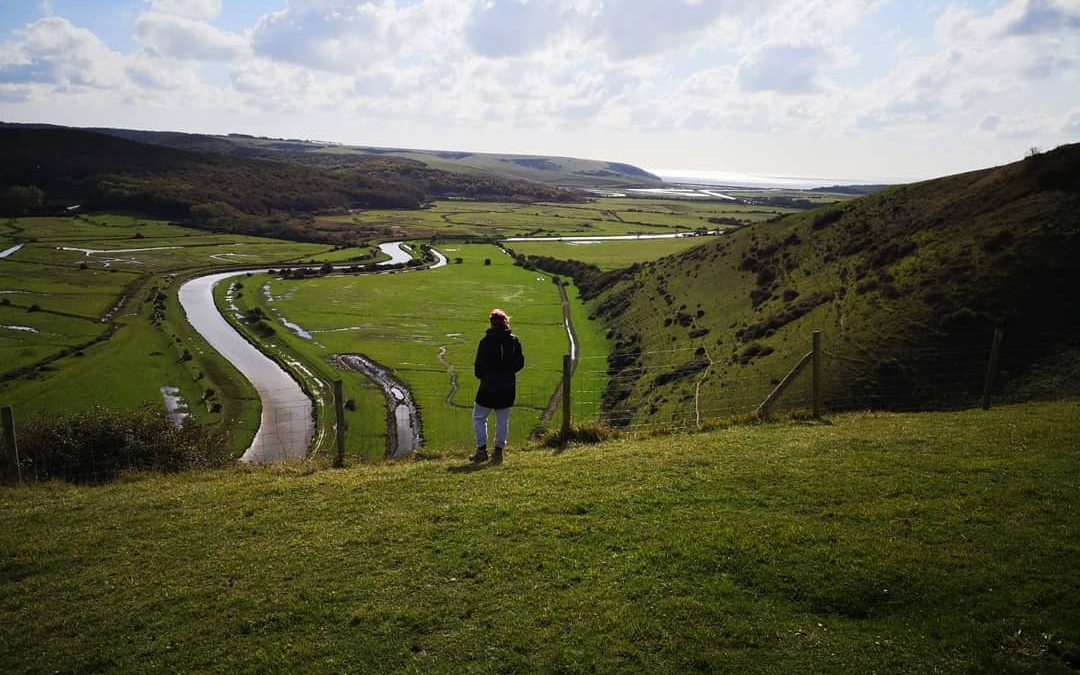The Green Wellbeing Alliance recently organised five pilot events as part of the Changing Chalk project, running ecotherapy groups at new locations across the South Downs.
A total of 25 people, most of whom are living with less visible health conditions or struggling with their mental health, came along to help test out some new ideas at five new locations, in exchange for their feedback.
Young people learn about our diverse grasslands
 One of the groups involved young people from youth group ‘Esteem’, in Shoreham, most of whom have been in care or experience mental health issues, such as depression, isolation and anxiety. They came to visit Truleigh Hill near Shoreham (see local walking route) where we fed rare breed sheep and learned of their importance in grazing the chalk grassland.
One of the groups involved young people from youth group ‘Esteem’, in Shoreham, most of whom have been in care or experience mental health issues, such as depression, isolation and anxiety. They came to visit Truleigh Hill near Shoreham (see local walking route) where we fed rare breed sheep and learned of their importance in grazing the chalk grassland.
We learned that there is as much biodiversity in a meter square of precious chalk grassland as there is a rainforest and how they are both endangered. We made flatbreads and cooked dinner on the fire and tried foraged roasted chestnuts.
“When you go back to basics [like coming here], you’re more in the here and now, more present. It helps you get out of your head.”
Several of the young people spoke about the community aspect of sharing a meal together and the sense of achievement in cooking for their peers. Almost all of them talked about feeling better as a result of getting outdoors.
“I have anxiety which affects me a lot. [Today,] I’ve come out of my comfort zone. Being around a fire has calmed me down, it feels homely here.”
“This is the first time I’ve done anything with the Esteem group. It’s been nice because I don’t get out much or do stuff like this normally. Honestly, this is the best thing I’ve done in a long time. Hopefully more people can experience this. I made garlic butter and bread for the first time. To hang out and have fun is nice, It’s really made me feel hopeful”.
Other sites we visited were Lullington Heath and Frog Firle Farm, both near Alfriston, and Castle Hill near Woodingdean (more info on our local Nature Reserves). All were incredibly successful and had plenty of positive feedback.
We are now awaiting a decision on further funding which would help us develop more opportunities like this across the South Downs.
Read on to find out a bit more about the Changing Chalk project:
 Chalk Downland is facing rapid decline with only 4% of original habitat remaining. At the same time, there is increasing public recognition of the importance of nature and place as a determinant of individuals’ health and well-being. This ambitious project will bring together people and nature to tackle these threats and to grasp the heightened opportunities that the area offers. The vision is to reverse the decline in chalk grassland and establish a long-term collaborative management plan which is sustainable because of the equal benefits it will provide for people in the form of health and well-being, recreation, skills, employment and eco-system services.
Chalk Downland is facing rapid decline with only 4% of original habitat remaining. At the same time, there is increasing public recognition of the importance of nature and place as a determinant of individuals’ health and well-being. This ambitious project will bring together people and nature to tackle these threats and to grasp the heightened opportunities that the area offers. The vision is to reverse the decline in chalk grassland and establish a long-term collaborative management plan which is sustainable because of the equal benefits it will provide for people in the form of health and well-being, recreation, skills, employment and eco-system services.
The project is being funded by National Lottery Heritage Fund, coordinated by the National Trust and delivered in partnership with: South Downs National Park Authority, Eastbourne and Lewes Council, Brighton and Hove City Council, Brighton and Hove Food Partnership, Kew Millennium Seed Bank, BugLife, Sussex Wildlife Trust, Natural England.

